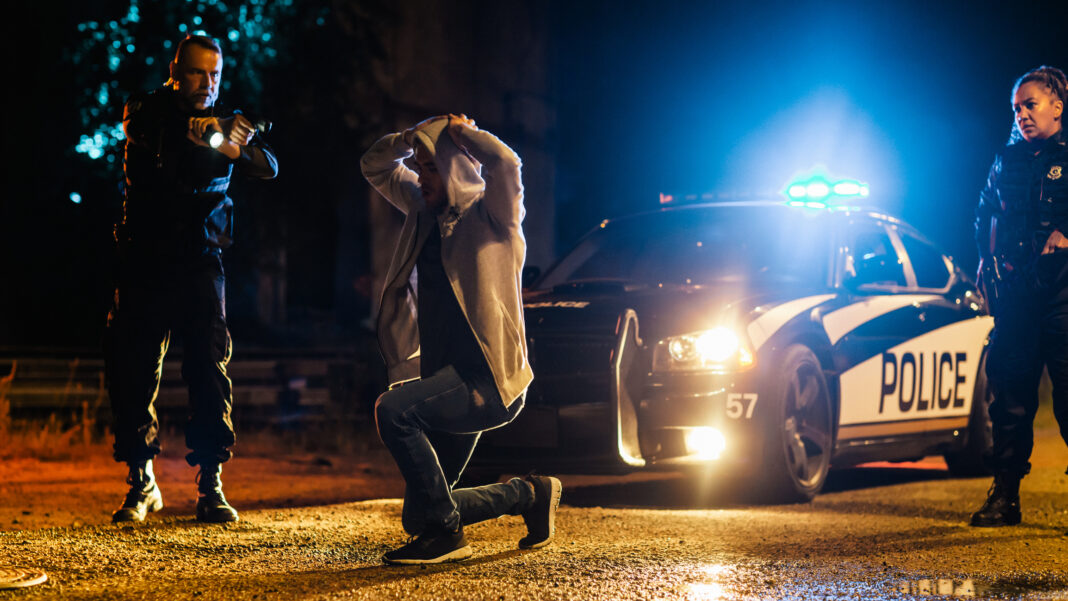On February 19, 2025, police stopped William McNeil Jr., a 22-year-old college student, for “not having the headlights on during inclement weather” in Jacksonville, Florida.
The officer explained the reason for the stop and then asked for McNeil’s license and registration. McNeil refused to offer his license and registration, demanded to speak with the officer’s supervisor, and then shut and locked his car door.
The officer requested backup.
When assistance arrived, McNeil refused to exit the vehicle. Eventually, the officers informed McNeil that he was being arrested for resisting. The officers warned McNeil seven times that if he did not get out of the vehicle, they would shatter his window.
One officer destroyed the window with his fist before punching McNeil. The other officers pulled McNeil from the vehicle, roughed him up more with their fists, and then arrested him.
News4JAX reported that on February 20, McNeil entered into a plea deal with the State Attorney’s Office. McNeil pleaded guilty to resisting an officer without violence and driving with a suspended license, and the charges for “drug paraphernalia, possession of marijuana edibles, and driving with no headlights and seatbelt were all dropped.” The State Attorney’s Office also cleared the officers of any criminal offenses.
The ordeal was over, but that wasn’t the end of it.
After reviewing McNeil’s cell phone footage from the incident, his attorneys challenged the validity of the plea deal. McNeil’s attorneys claimed that their client sustained a brain injury during the arrest and was not mentally fit to strike a deal. Then McNeil’s attorneys prepared a civil rights complaint against the Jacksonville Sheriff’s Office.
A few weeks ago, the public release of McNeil’s cell phone recording caused a nationwide uproar, despite some support for the officers.
Those who were furious argued that punching McNeil constituted police brutality. The police supporters believed McNeil caused the undesirable outcome by refusing to comply, but they also thought the punch was unnecessary.
Neither side understood how the State Attorney’s Office cleared the officer of criminal charges. That’s a normal reaction for those who have been taught since childhood to keep their hands to themselves, that striking someone with a fist is only appropriate in self-defense, and, more importantly, that striking someone in rage is always battery.
However, the standards that govern polite society differ from the rules that govern police officers when making an arrest. This fact, according to police reform advocates, is a double standard that must be remedied, but here’s a question they don’t ask: Do methods that make arrests appear less violent cause more harm to the individual being arrested?
For instance, in the 1990s, police reformers linked the use of nightsticks to police brutality. Police departments began issuing tasers to eliminate the use of nightsticks, but police reformers were unconcerned if the individual being arrested preferred to be hit with a nightstick rather than electrocuted. Apparently, police reformers who couldn’t bear the sight of a person being beaten with a nightstick could endure electrocutions since they appeared less brutal on camera.
(Note: A 2023 local news report from ABC11 Raleigh-Durham stated an estimated 500 people died from police use of Tasers nationwide between 2010 and 2021.)
The police officer punching McNeil elicited the same reaction as the use of the nightstick—polite society was appalled by the sight of it, but the question remains: Was the officer’s punch a criminal act?
In 2018, three experts discussed the circumstances under which police officers are allowed to use force on NPR’s Weekend Edition Saturday. The discussion followed a viral video showing police officers in Mesa, Arizona, using their fists on an unarmed and noncombative suspect, which prompted the police chief to establish new rules prohibiting officers from hitting individuals in the face, head, or neck.
Many people were surprised these rules did not previously exist.
NPR’s law enforcement correspondent stated, “Actually, police are allowed to hit people. Generally speaking, police officers are allowed to use punches to stun individuals who are resisting arrest or who pose a threat. Trainers say a punch can be a very effective, non-lethal way to control a dangerous suspect … Nowadays, cops are punching people less, but when they do, it looks really bad.”
According to the professional police trainer, there has been a cultural shift not only among police officers but throughout society; there is zero tolerance for fist fighting, and police departments are adjusting.
A criminal justice professor stated a fact that polite society refuses to accept. He said, “Policing involves the use of force. You cannot achieve compliance just by mere verbalization.”
Concerning the McNeil arrest, conservative commentator and former police officer Brandon Tatum remarked that he believed the Jacksonville officer did not need to strike McNeil. However, Tatum asserted that one must consider the law, the justification for using force against individuals at any given time, and the overall circumstances. The officer had to force a noncompliant person out of the vehicle. If that officer believed a face strike was necessary to execute an arrest, then that officer can use that force.
Apparently, those who equate the punch McNeil received with excessive force would have preferred that he be pepper sprayed since it appears less violent on camera, but it’s not difficult to imagine that McNeil preferred getting punched over being pepper sprayed.
(Note: In 2017 Dr. Judy Stone asked in Forbes Magazine: What do we know about pepper spray? She wrote, “I reviewed the literature in 2011 and wrote, ‘Should pepper spray be put on a (clinical) trial?’ Now, five years later, I’ve found no further research studies. New information is from news reports about injuries, which have increased as the chemical is used more indiscriminately.” In 2025, not much has changed, except for the preference of polite society.)



